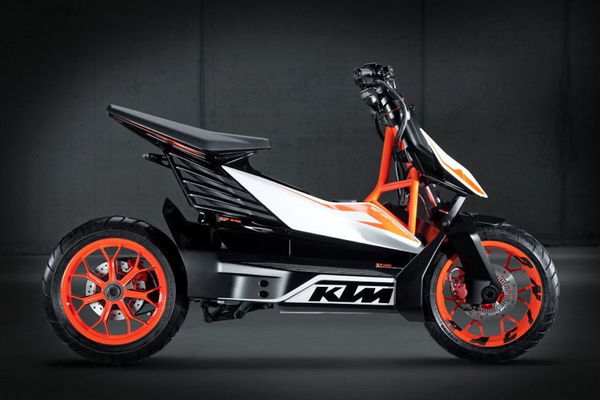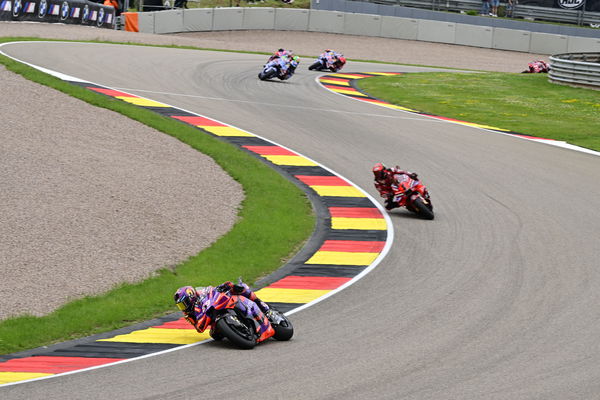Does Suzuki MotoGP exit signal end of the road for GSX-R1000?
Suzuki officially confirms it is quitting both MotoGP and EWC at the end of the 2022 season... so could also be the end of the road for the Suzuki GSX-R1000?
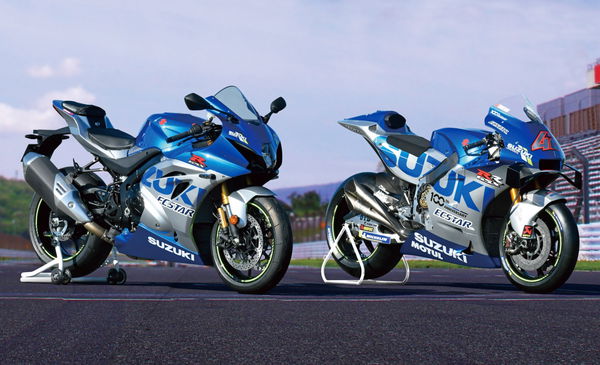
The worst kept secret in motorsport finally went public this week as Suzuki officially confirmed it will quit MotoGP at the end of the 2022 season.
Though word of the decision spread across the paddock shortly after it was communicated to shocked team personnel - including riders Joan Mir and Alex Rins - in May, Suzuki this week formally confirmed it is indeed calling it quits.
Indicating Suzuki has reached an agreement with Dorna to extricate itself from its MotoGP contract - at an undisclosed heavy cost - while the arrival of an email titled ‘Ending MotoGP participation…’ registered little more than a ‘finally’ from most, the statement itself still offered up some interesting details.
First and foremost, Suzuki is in fact shuttering its official motorsport programme with its official SERT (Suzuki Endurance Racing Team) also being withdrawn from the Endurance World Championship.
While smaller in profile than its MotoGP effort, SERT is nonetheless a force in EWC terms with title wins in 2020 and 2021, despite the venerable Suzuki GSX-R1000 not exactly being in the first flush of youth compared with its rivals.
As such, with no racing programme associated with its flagship sportsbike, it raises the question as to whether we will see a next generation version of its venerable GSX-R1000.
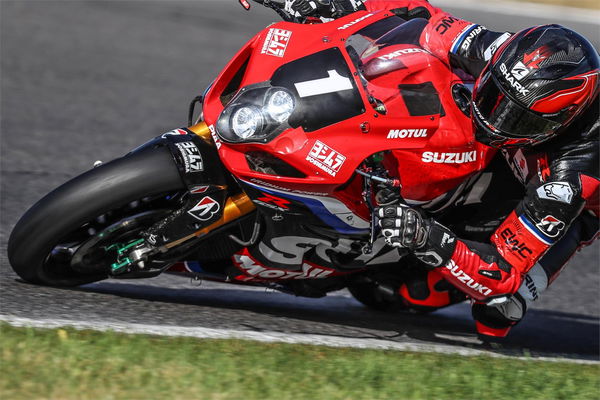
Is Suzuki restraining motorsport to sustain itself?
Rumours regarding the reasons as to why Suzuki is exiting MotoGP (and EWC) have fluttered for weeks with talk of it trying to cushion the blow from a huge fine being handed down amid a scandal over using emissions cheat devices believed to be a major factor.
Officially speaking, the announcement spoke of a shift in focus towards more eco-conscious models.
“Suzuki has decided to end the participation of MotoGP and EWC in the face of the need to re-allocate resources on other initiatives for sustainability,” read the statement from Suzuki.”
The aforementioned scandal notwithstanding, this greener conscience is unlikely to be a smokescreen. Motorcycling is beginning a period of change as it prepares for the shift towards electric/alternative power, but faces an awkward time in doing so.
Indeed, while governments have been forthright in laying down deadlines for manufacturers to move away from fossil fuelled ICE machines to more environmentally friendly models, the regulations have been designed with four wheels in mind. While the growth in the hybrid and EV sector in the automotive industry puts manufacturers on target to meet this deadline, the same cannot be said for motorcycling.
Indeed, while the deadlines for the motorcycle industry remain the same, public take up is well behind the curve. It means manufacturers will be forced to spend more money to develop technology to ease the transition, as well as push hard on marketing them to make a profit.
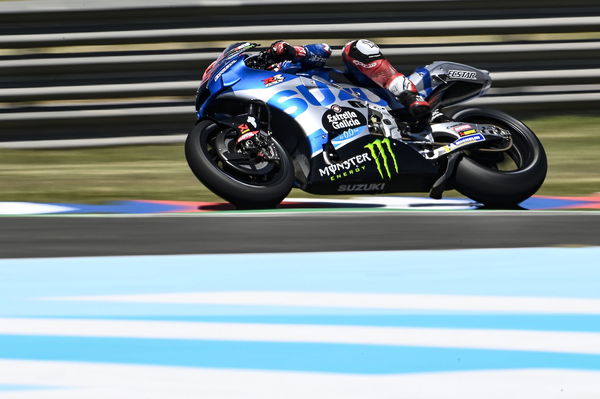
With this in mind, motorsport is largely at odds with this future despite attempts to show a greener conscience with series’ like MotoE. For the manufacturers competing in MotoGP and WorldSBK - Yamaha, Honda, Aprilia, KTM, Kawasaki, BMW and Ducati - a racing programme makes sense because they either have fairly new associated sportsbikes/hypernakeds to push, though this could change in future.
Suzuki, however, does not with the latest generation GSX-R1000 launched in 2017 and has been fairly unchanged since.
Indeed, Suzuki - compared with fellow Japanese giants Honda, Yamaha and Kawasaki - has always been rather laissez-faire when it comes to racing commitments. It wound down its MotoGP operation in 2011 during the financial crisis before returning a few years later.
However, that came at the expense of a WorldSBK programme, which went from title-winner to quietly falling off the grid altogether in less than a decade.
![Christian Iddon, Gino Rea [pic credit: Ian Hopgood]](https://cdn.visordown.com/field/image/AK8I9328.jpg?width=600)
Where does this leave the Suzuki GSX-R1000?
Despite its rich ‘Gixxer’ heritage, the Suzuki GSX-R1000 has been something of a hidden player in the sportsbike market with its racing commitments limited to domestic series’ such as BSB, MotoAmerica and EWC.
If anything though, not investing in WorldSBK could have been a missed opportunity for Suzuki given the machine - five years after it was launched - remains a competitive race winner in all three today despite private investment.
Then again, by putting all of its focus into MotoGP, Suzuki has also enjoyed significant success as demonstrated by its 2020 MotoGP World Championship title win with Joan Mir.
However, that came in a year Suzuki had very little to promote, with the latest generation Hayabusa hitting the newsstands a few months after the champagne in Valencia was mopped up.
As such, it is plausible that Suzuki didn’t see an upturn in sales to justify the expense of competing and winning at the highest level of motorsport, though - in the opinion of this editor - it was lacklustre in its attempts to capitalise on the marketing clout of such a huge achievement.
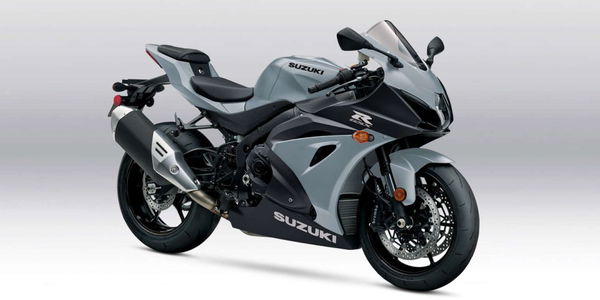
With its racing programmes shuttered and the sportsbike market continuing in its steady decline, the omens for the GSX-R1000 don’t look good.
It is already on course to fall off price lists at the end of 2022 as the deadline for models that don’t meet Euro V emissions regulations comes into effect. While you may point out - correctly - that these measures came at the start of 2020, a selection of models (including the GSX-R1000) were allowed a two-year derogation dispensation as low volume models.
Intended to give manufacturers some leeway to clear existing stock - rather than spend two years adding to it - it means Suzuki has the choice of either updating the GSX-R1000 to meet demands or drop it from its European range.
While it has previously chosen the route of updating models, such as the volume SV650 and V-Strom 650, it otherwise chose to just ditch the GSX-R1000’s sportsbike siblings, the GSX-R600 and GSX-R750 which instead live on in the United States.
Combine these events with the fact motorcycling is heading for a greener future and Suzuki might see this as the moment to cast the GSX-R1000 to the history books, rather than go to the expense of developing a new model knowing it could be obsolete in a few years time.
Pulling out of motorsport might well have been the first hint…
